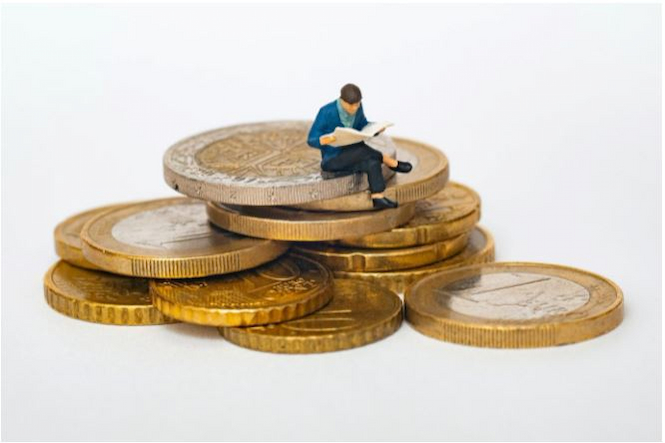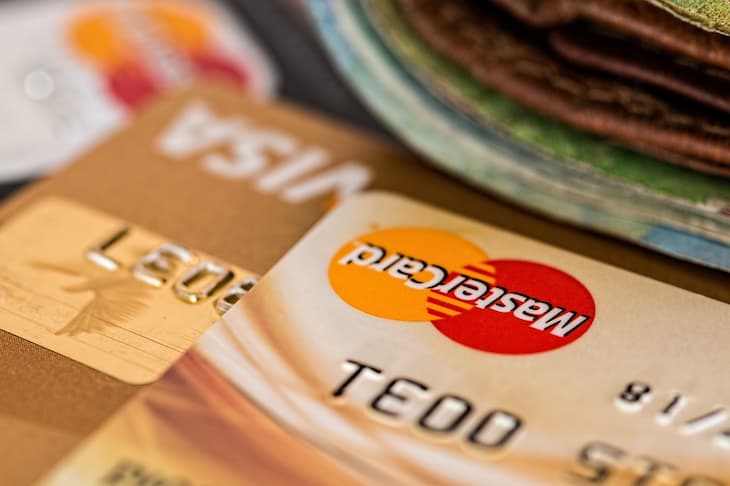Disclosure: Articles may contain affiliate links. As an Amazon Associate, we earn from qualifying purchases (at no additional cost to you). See our full disclosure here.
Last updated on May 29th, 2023 at 04:27 pm
Even though making resolutions to improve your financial health is something you can do at any time of the year, many people prefer doing this as part of their New Year’s resolutions. But, whenever you decide to get your finances in order, the basics remain the same.
And, regardless of the reason you’ve decided that now is the time to get out of debt and start saving money (whether to have an emergency fund, to start a business, or to invest later), the following strategies will help you to stick to your goals.
Let’s take a look at ten personal finance tips for beginners.

Top 10 Personal Finance Tips for Beginners
-
Start Early
Start saving as early as possible. Even if you’re only able to save a small amount, not only are you going to build the habit of saving, but getting a head start is going to give you a huge advantage.
With time, the power of compounding interest will begin working in your favor, and you’ll witness exponential growth in the money you are able save. So, don’t procrastinate!
-
Earn What You Deserve, and Spend Less than What You’re Paid
While this may sound simple, people struggle with this basic rule. First and foremost, you must know your worth in the labor market.
Evaluate your productivity, skills, contribution to the organization, and the tasks you do. Being underpaid by even $500 a month can have a significant effect on your working life over time.
But, regardless of how little or how well you’re paid, you’re never going to save money if you spend more than you earn. With a few cost-cutting measures, you can find ways to save without making big sacrifices.

-
Track What You Spend
How often have you heard people say, ‘I don’t know where it all went!’ The fact of the matter is that many people have very little insight into how much they spend. The first step to improving your financial health is making a list of where your money goes.
Almost everyone is surprised once they’ve completed this activity. It really shows how little things add up to take major bites out of our budgets over time.
You can track what you spend on Google Sheets, banking applications, or Excel. Do this for at least three months, so you can understand what your spending habits look like. The goal is to be mindful about what you spend. Doing this can have a dramatic impact on your budget and your savings.
-
Pay Off Your Credit Card Debt
Credit card debt is often the number one reason people can’t set save money. These little plastic cards are convenient to use. But it is often easy to forget that it is real money we’re spending when we whip them out of our wallets.
Despite our best efforts to stay out of debt, the reality is that we spend with credit too easily. We end up paying far more for things with credit cards (and the interest charges that go along with them) than if we’d just paid with cash. [Read: Free Printable Debt Payoff Worksheet PDF (Debt Snowball Method)]
-
You Must Have a Savings Plan
Here’s one of the most important personal finance tips for beginners (and you’ve heard this before): pay yourself first.
When your salary is deposited into your bank account, set aside the money you’re planning to save each pay period. If you wait to see what you’re left with after you’ve met all of your financial obligations, you’ll never have a healthy savings account.
Commit to saving at least five percent of your salary before you begin stressing about your bills. The easiest way to do this is to have a certain amount of money deducted automatically from your paycheck.
Top 10 Personal Finance Tips for Beginners | #personalfinance Click To Tweet-
Set Small, Achievable Goals
One study showed that if a goal seems far off, and we think we won’t be able to achieve it, we are likely to give up on it.
So, apart from setting big goals (for example: saving for a down payment for a house), also set some smaller short-term goals. This way, you’ll see results and get rewarded faster. This is a great way to stay motivated.
You can do things like saving a set amount of money every week for a few months toward a long weekend getaway, or save a small amount of money each week with the goal of treating yourself to a spa day.
-
Set Aside Money for an Emergency Fund
Inherent in the word ‘emergency’ is the idea that something unexpected can happen. This means that it’s always a good idea to prepare in advance. An emergency can be anything, be it a car repair, broken appliances, or loss of employment.
For example, consider the money you’ll need if you had to replace the water heater in your home. This might cost around $2,000. However, most financial experts recommend setting aside enough money for three to six months’ worth of living expenses. That’s because something like a job loss can set you back even further than a smaller unexpected expense. And, remember to keep your ’emergency fund’ money where it’s easily accessible.
P.S: In case you hadn’t guessed this already, a credit card isn’t an emergency fund!

-
Go Through Insurance Coverages
Too many people are paying way more than they need to for disability and life insurance. The cost of disability insurance won’t drain your income if you find a plan that perfectly suits your situation. That being said, whether we’re adding these coverages to already existing policies or buying new hefty life insurance policies altogether—at times, we fear the worst a bit too much.
For example, you usually don’t need life insurance on your children. Young children aren’t employed and contributing to the household income, so you wouldn’t need life insurance to replace their lost wages.
If you do decide to purchase a new policy, make sure you do a thorough life insurance comparison, looking carefully at costs and benefits before making a final decision.
-
Don’t Co-Sign a Loan
Here’s why it’s not a great a idea to co-sign a loan (or a lease, for that matter): if your friend, significant other, or family member misses a payment, your credit score takes a hit. The lender will come after you for the money, which will ultimately hurt your relationship with the co-signee as well.
Moreover, if your bank is asking for a co-signer, it means they don’t trust you enough to pay back the amount.
Bonus Tip: If you’re a parent who has been asked to co-sign a private loan for your child’s college tuition, ensure you’ve maxed out all other options (scholarships, loans, grants, etc.).
-
Go Digital
And, finally, the last of our personal finance tips—use all the digital platforms at your disposal to shop and save. Whether you’re using them for your home, life insurance, or utility payments, you’ll benefit from the savings you find.
For example, the premium on insurance plans is usually lower by approximately 25% compared to the offline plan. And, once you develop a habit of saving on small transactions, the result will be a healthier savings account that sets you up for a better future.
Checking In
How are you doing on this checklist of our top personal finance tips for beginners? If you’re not nailing at least six of them, consider making some adjustments. Pick one area to work on. Then, make it a goal to tackle the rest.
If you liked these personal finance tips for beginners, also read:
How to Save for a Rainy Day: Try These 5 Smart Saving Strategies
Get Your Truly FREE Credit Report and Credit Score Online
How to Build Your Credit Score — 5 Important Tips To Maintain Good Standing
You can find MomsWhoSave on Facebook, Instagram, Pinterest, and Twitter. Follow us to get our latest updates.
Don’t miss a thing! Subscribe to MomsWhoSave’s newsletter.

Leave a Reply